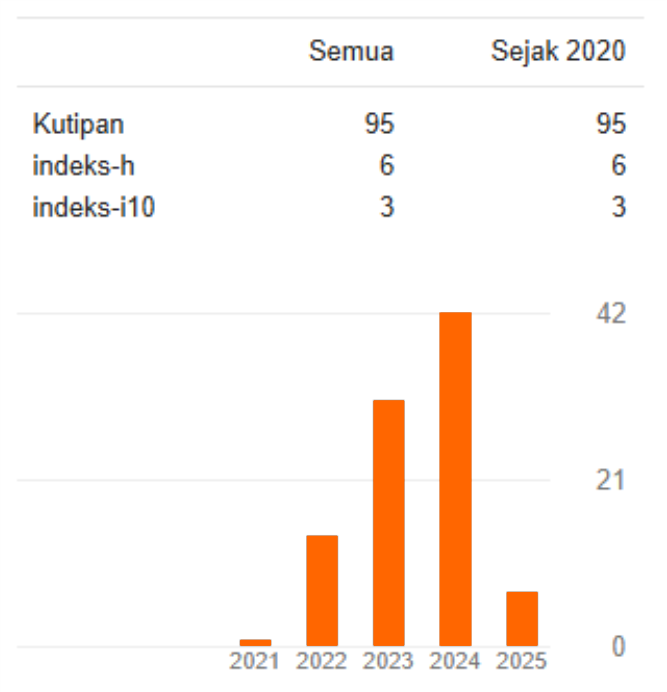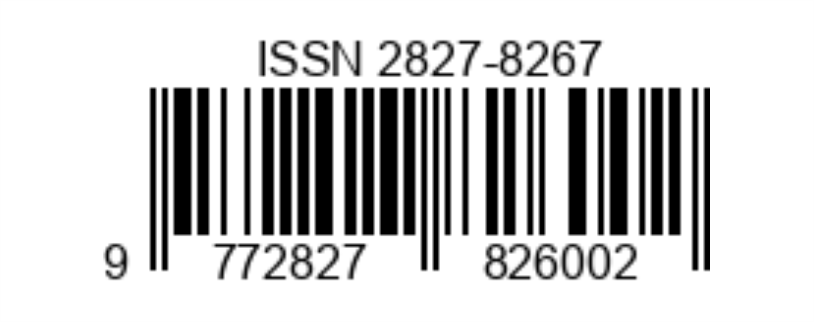Sharia-Based Corporate Social Responsibility Disclosures for Responsible Innovation: What are the Benefits to Overcome the Grand Challenge?
DOI:
https://doi.org/10.26905/bismar.v2i1.9716Abstract
The grand challenges of poverty, inequality, hunger, war, climate change, and deforestation impede the advancement of sustainable development. These difficulties can only be addressed by fundamental changes in behavior, production modes and processes, and business practices in general. In this paper, we will create the notion of corporate social responsibility disclosures (CSRD) based on shari’ah and analyze the potentials and limitations for the advancement of sustainable development and overcome the grand challenge. This study approach incorporates theoretical and empirical insights into the ways in which alternative forms of CSRD might assist in addressing grand challenges. Thus, the study provides examples of CSRD and corporate governance that might assist in producing ideas that do good and avoid harm in order to solve this worldwide issue. However, this study is limited by the researcher’s subjectivity, which has a significant impact on the outcome of proposing a new form of CSRD to address humanity’s grand challenges.
Downloads
References
Adler, P. B., Smull, D., Beard, K. H., Choi, R. T., Furniss, T., Kulmatiski, A., Meiners, J. M., Tredennick, A. T., & Veblen, K. E. (2018). Competition and coexistence in plant communities: intraspecific competition is stronger than interspecific competition. Ecology Letters, 21(9), 1319–1329. https://doi.org/10.1111/ele.13098
Anwar, R., & Malik, J. A. (2020). When Does Corporate Social Responsibility Disclosure Affect Investment Efficiency? A New Answer to an Old Question. SAGE Open, 10(2). https://doi.org/10.1177/2158244020931121
Bushman, R., & Landsman, W. R. (2010). The pros and cons of regulating corporate reporting: A critical review of the arguments. Accounting and Business Research, 40(3), 259–273. https://doi.org/10.1080/00014788.2010.9663400
Campbell, J. Y., Lettau, M., Malkiel, B. G., & Xu, Y. (2001). Have Individual Stocks Become More Volatile? An Empirical Exploration of Idiosyncratic Risk. The Journal of Finance, 56(1), 1–43. https://doi.org/https://doi.org/10.1111/0022-1082.00318
Connelly, B. L., Certo, S. T., Ireland, R. D., & Reutzel, C. R. (2011). Signaling theory: A review and assessment. Journal of Management, 37(1), 39–67. https://doi.org/10.1177/0149206310388419
Costanza, R., & Patten, B. C. (1995). Defining and predicting sustainability. Ecological Economics, 15(3), 193–196. https://doi.org/10.1016/0921-8009(95)00048-8
Deegan, C. M. (2019). Legitimacy theory: Despite its enduring popularity and contribution, time is right for a necessary makeover. Accounting, Auditing and Accountability Journal, 32(8), 2307–2329. https://doi.org/10.1108/AAAJ-08-2018-3638
Deegan, C., & Rankin, M. (1996). Do Australian companies report environmental news objectively? Accounting, Auditing & Accountability Journal, 9(2), 50–67. https://doi.org/10.1108/09513579610116358
Donaldson, T. (1982). Corporations and Morality. Journal of Business Ethics, 1(3), 251–253.
Donaldson, T., & Dunfee, T. W. (1994). Towards A Unified Conception Of Business Etldcs: Integrative Social Contracts Theory. The Academy of Management Review, 19(2), 252.
Dunfee, T. W. (2006). A Critical Perspective of Integrative Social Contracts Theory: Recurring Criticisms and Next Generation Research Topics. Journal of Business Ethics, 68(3), 303–328. https://doi.org/10.1007/s10551-006-9016-6
Ferraro, F., Etzion, D., & Gehman, J. (2015). Tackling Grand Challenges Pragmatically: Robust Action Revisited. Organization Studies, 36(3), 363–390. https://doi.org/10.1177/0170840614563742
George, G., Howard-Grenville, J., Joshi, A., & Tihanyi, L. (2016). Understanding and tackling societal grand challenges through management research. Academy of Management Journal, 59(6), 1880–1895. https://doi.org/10.5465/amj.2016.4007
Griggs, D., Stafford-Smith, M., Gaffney, O., Rockström, J., Öhman, M. C., Shyamsundar, P., Steffen, W., Glaser, G., Kanie, N., & Noble, I. (2013). Policy: Sustainable development goals for people and planet. Nature, 495(7441), 305–307. https://doi.org/10.1038/495305a
Hobbes, T. (1946). Leviathan: Or the matter, forme and power of a commonwealth ecclesiastical and civil (Vol. 1, Issue 1). Basil Blackwell.
Junior, R. M., Best, P. J., & Cotter, J. (2014). Sustainability Reporting and Assurance: A Historical Analysis on a World-Wide Phenomenon. Journal of Business Ethics, 120(1), 1–11. https://doi.org/10.1007/s10551-013-1637-y
Kankam, P. K. (2019). The use of paradigms in information research. Library and Information Science Research, 41(2), 85–92. https://doi.org/10.1016/j.lisr.2019.04.003
Kokotovich, A. E., Kuzma, J., Cummings, C. L., & Grieger, K. (2021). Responsible Innovation Definitions, Practices, and Motivations from Nanotechnology Researchers in Food and Agriculture. NanoEthics, 15(3), 229–243. https://doi.org/10.1007/s11569-021-00404-9
Lee, R. G., & Petts, J. (2013). Adaptive Governance for Responsible Innovation. Responsible Innovation: Managing the Responsible Emergence of Science and Innovation in Society, 143–164. https://doi.org/10.1002/9781118551424.ch8
Locke, J. (1986). The Second Treatise on Civil Government. Prometheus; Great Books in Philosophy edition (March 1, 1986).
Mahadeo, J. D., Soobaroyen, T., & Hanuman, V. O. (2012). Board Composition and Financial Performance: Uncovering the Effects of Diversity in an Emerging Economy. Journal of Business Ethics, 105(3), 375–388. http://www.jstor.org/stable/41413223
Mahoney, J., & Goerts, G. (2006). A tale of two cultures: Contrasting quantitative and qualitative research. Political Analysis, 14(3), 227–249. https://doi.org/10.1093/pan/mpj017
Meutia, I., Sudarma, M., Triyuwono, I., & Ludigdo, U. (2012). Qualitative Approach to Build the Concept of Social Responsibility Disclosures Based on Shari’ah Enterprise Theory. SSRN Electronic Journal. https://doi.org/10.2139/ssrn.1662860
Nilsson, M. (2017). Important interactions among the sustainable development goals under review at the high-level political forum 2017. Sei-International.Org. https://www.sei-international.org/mediamanager/documents/Publications/SEI-WP-2017-06-Nilsson-SDG-interact-HLPF2017.pdf
Omran, M. A., & Ramdhony, D. (2015). Theoretical Perspectives on Corporate Social Responsibility Disclosure: A Critical Review. International Journal of Accounting and Financial Reporting, 5(2), 38. https://doi.org/10.5296/ijafr.v5i2.8035
Owen, R., Stilgoe, J., Macnaghten, P., Gorman, M., Fisher, E., & Guston, D. (2013). A Framework for Responsible Innovation. Responsible Innovation: Managing the Responsible Emergence of Science and Innovation in Society, September 2019, 27–50. https://doi.org/10.1002/9781118551424.ch2
Ramdhony, D. (2018). The Implications of Mandatory Corporate Social Responsibility—A Literature Review Perspective. Theoretical Economics Letters, 08(03), 432–447. https://doi.org/10.4236/tel.2018.83031
Rasche, A., Waddock, S., & McIntosh, M. (2013). The United Nations Global Compact: Retrospect and Prospect. Business and Society, 52(1), 6–30. https://doi.org/10.1177/0007650312459999
Rashid, A. (2015). The influence of stakeholder power on corporate social responsibility: Evidence from a relationship-based economy. In Social Responsibility Journal (Vol. 11, Issue 2, pp. 270–289). https://doi.org/10.1108/SRJ-09-2013-0109
Rest, J., Narvaez, D., Bebeau, M., & Thoma, S. (1999). A Neo-Kohlbergian Approach: The DIT and Schema Theory. Educational Psychology Review, 11(4), 291–324. https://doi.org/10.1023/A:1022053215271
Rousseau, J.-J. (1968). The Social Contract (Penguin Classics). 192.
Scherer, A. G., & Palazzo, G. (2011). The New Political Role of Business in a Globalized World: A Review of a New Perspective on CSR and its Implications for the Firm, Governance, and Democracy. Journal of Management Studies, 48(4), 899–931. https://doi.org/10.1111/j.1467-6486.2010.00950.x
Scherer, A. G., Palazzo, G., & Seidl, D. (2013). Managing Legitimacy in Complex and Heterogeneous Environments: Sustainable Development in a Globalized World. SSRN Electronic Journal, 306. https://doi.org/10.2139/ssrn.2137060
Scherer, A. G., & Voegtlin, C. (2020). Corporate Governance for Responsible Innovation: Approaches to Corporate Governance and Their Implications for Sustainable Development. Academy of Management Perspectives, 34(2), 182–208. https://doi.org/10.5465/amp.2017.0175
Sharma, Dr. L. J. K., & Singh, Dr. S. K. (2013). A Study on the Democratic Style of Leadership. International Journal of Management & Information Technology, 3(2), 54–57. https://doi.org/10.24297/ijmit.v3i2.1367
Stahl, G. K., & de Luque, M. S. (2014). Antecedents of responsible leader behavior: A research synthesis, conceptual framework, and agenda for future research. Academy of Management Perspectives, 28(3), 235–254. https://doi.org/10.5465/amp.2013.0126
Steffen, W., Richardson, K., Rockström, J., Cornell, S. E., Fetzer, I., Bennett, E. M., Biggs, R., Carpenter, S. R., de Vries, W., de Wit, C. A., Folke, C., Gerten, D., Heinke, J., Mace, G. M., Persson, L. M., Ramanathan, V., Reyers, B., & Sörlin, S. (2015). Planetary boundaries: Guiding human development on a changing planet. Science, 347(6223). https://doi.org/10.1126/science.1259855
Stilgoe, J., Owen, R., & Macnaghten, P. (2013). Developing a framework for responsible innovation. Research Policy, 42(9), 1568–1580. https://doi.org/10.1016/j.respol.2013.05.008
Thorne, L., Mahoney, L., & Manetti, G. (2014). Motivations for issuing standalone CSR reports: A survey of Canadian firms. Accounting, 27. https://doi.org/10.1108/AAAJ-07-2013-1393
Triyuwono, I. (2013). [Makrifat] Metode Penelitian Kualitatif [Dan Kuantitatif] Untuk Pengembangan Disiplin Akuntansi. Simposium Nasional Akuntansi, September, 1–15. http://snaxvi.iaiglobal.or.id/materi_sna/Artikel_Makrifat Metode Kualitatif_iwan_triyono.pdf
United Nations. (1987). Report of the World Commission on Environment and Development. In General Assembly Resolution (Vol. 4, Issue 1, pp. 17–25). https://doi.org/10.1080/07488008808408783
United Nations. (2019). Peace, dignity and equality on a healthy planet. In Global Issues (pp. 1–6). https://www.un.org/en/global-issues/ageing
Verrecchia, R. E. (1983). Discretionary disclosure. Journal of Accounting and Economics, 5, 179–194. https://doi.org/https://doi.org/10.1016/0165-4101(83)90011-3
Voegtlin, C., & Pless, N. M. (2014). Global Governance: CSR and the Role of the UN Global Compact. Journal of Business Ethics, 122(2), 179–191. https://doi.org/10.1007/s10551-014-2214-8
Voegtlin, C., & Scherer, A. G. (2017). Responsible Innovation and the Innovation of Responsibility: Governing Sustainable Development in a Globalized World. Journal of Business Ethics, 143(2), 227–243. https://doi.org/10.1007/s10551-015-2769-z
Whiteman, G., Walker, B., & Perego, P. (2013). Planetary Boundaries: Ecological Foundations for Corporate Sustainability. Journal of Management Studies, 50(2), 307–336. https://doi.org/10.1111/j.1467-6486.2012.01073.x
Downloads
Published
Issue
Section
License
Authors who publish with this journal agree to the following terms:
(1)Â Copyright of the published articles will be transferred to the journal as the publisher of the manuscripts. Therefore, the author confirms that the copyright has been managed by the journal.
(2) Publisher of Jurnal Penelitian is University of Merdeka Malang.
(3) The copyright follows Creative Commons Attribution–ShareAlike License (CC BY SA): This license allows to Share — copy and redistribute the material in any medium or format, Adapt — remix, transform, and build upon the material, for any purpose, even commercially.







